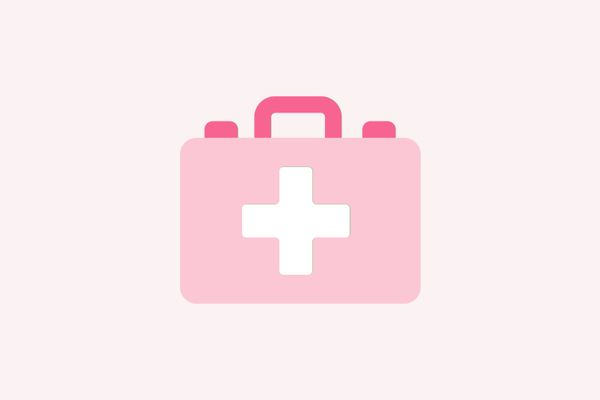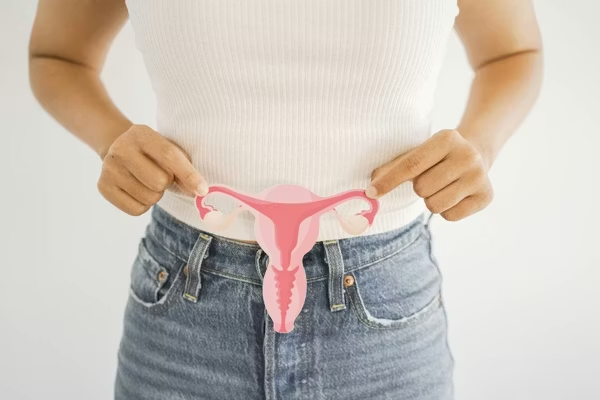The first thing I crave is cookies (preferably chocolate chip), followed by sour cream and onion potato chips. That's usually around the time my acne begins to flare up. And if I come across lost pet posts on social media, I start to cry.
Moodiness, cramps and food cravings are common signs of premenstrual syndrome, a condition that impacts the majority of women who get periods. Most women have their favorite go-to PMS relief remedy, but nothing is foolproof — especially against the worst PMS symptoms.
I recently spoke with Dr. Robyn Faye, a clinical assistant professor at Drexel University and a member of HealthyWomen's Women's Health Advisory Council, to get the lowdown on PMS and what women can do to combat it.
"The biggest misconception is that someone can control her symptoms," Faye said. "That she is making it up and others perceive it as minimal, nothing. Someone can just move on and stop complaining."
Exploring common symptoms
PMS is caused by fluctuations in female sex and pituitary hormones. The brain chemical serotonin can also play a role in mood swings that come with PMS.
So while on a normal day, I'd usually be sad hearing about a lost cat, when I'm in the midst of PMS, I burst into tears.
While statistics vary, some sources indicate that up to 90% of women of childbearing age report suffering from some PMS symptoms, which include emotional as well as physical symptoms that go away with the onset of menstruation. Another 5% of women suffer from a severe form of PMS called premenstrual dysphoric disorder (PMDD), which can bring on debilitating mood changes.
How long does PMS last?
Symptoms can begin in the middle of a woman's menstrual cycle and last until her flow begins. Common physical symptoms include bloating, breast tenderness, cramps, fatigue and acne. The most common emotional symptoms are irritability and mood swings.
What to do when PMS starts
While there isn't a one-size-fits-all solution for PMS, there are a variety of things women can do to alleviate symptoms.
"Reducing salt, caffeine and stress, and increasing exercise are recommended," Faye said. "Calcium and vitamin D and eating healthy are [also] important."
Walking, running, swimming, cycling and other forms of exercise help get your heart rate going and can lessen symptoms. Even though it can be hard for me to pause my latest binge watch, I know I always feel better after taking a short walk.
Of course, I'm usually eating chocolate-chip cookies while streaming my favorite shows, but the American College of Obstetricians and Gynecologists and Faye recommend avoiding simple carbohydrates, including refined sugars. Instead, look for foods containing complex carbohydrates, such as whole grain pasta and beans. Leafy greens like spinach, kale and romaine lettuce are a good source of calcium, iron and vitamins C and K.
If you can't resist that PMS chocolate craving (and few of us can), bite into a bar of dark chocolate, which is rich in iron, magnesium and zinc.
Perhaps one of the most annoying symptoms of PMS is bloating, which can cause temporary weight gain and make you feel uncomfortable. Diuretics, commonly known as water pills, can help increase urinary flow and lessen the water retention that causes bloating. Over-the-counter diuretics are often marketed as weight loss solutions and none are FDA-approved, so it is best to consult your medical provider for a prescription.
For those who want to go the natural route, Faye recommends vitamin B6 and chasteberry. One 2016 clinical trial showed that vitamin B6 can reduce bloating and even anxiety. Chasteberry can help balance estrogen levels and decrease mood swings, according to another 2016 study.
Faye also suggests taking evening primrose oil and vitamin E to relieve breast tenderness.
Preparing for PMS
So what happens if you start going for more walks, take your supplements and over-the-counter meds, but still can't find relief from PMS?
"If a woman knows that she will be experiencing symptoms monthly, she can best prepare by seeing her medical practitioner and asking for treatment options," Faye said.
This is especially true if PMS starts impacting your daily life. If you're unable to complete tasks at work or participate in the activities you love due to physical or emotional PMS symptoms, it's time to consult your medical provider.
Studies have also shown that birth control pills can also be an effective treatment for PMS.
"Hormonal contraceptives also are commonly used to relieve the physical symptoms, not the emotional symptoms," Faye said.
Birth control can help lessen breast tenderness, make those annoying zits disappear, and reduce the severity of often-painful cramps.
Some women feel depressed when they have PMS, if that's the case, they may benefit from taking SSRIs, selective serotonin reuptake inhibitors, which can balance the brain's neurotransmitter levels, cutting down on mood swings and anxiety, according to Faye.
Does PMS get worse with age?
Faye says that PMS does change and worsen as women get older and closer to perimenopause, which typically begins when women reach their mid-40s, though it's not unusual for it to start when they're in their mid-30s.
"I discuss PMS symptoms, just like I discuss urinary incontinence and sexual dysfunction in my annual visits [with my patients]," Faye said. "I always ask the questions so someone is not embarrassed or reluctant to discuss or seek treatment."
If your doctor doesn't ask you about PMS, you shouldn't be ashamed to bring it up yourself.
"I try to explain that PMS symptoms of some level are common in all of us, so there is no reason to suffer in silence," Faye said.
As for me, I have a feeling it'll be hard for me to give up my chocolate chip cookies entirely. But I'm up for adding more leafy greens to my diet and giving chasteberry a try.
- A Surprising Way to Fight Fatigue ›
- Premenstrual Syndrome (PMS) ›
- 7 PMS Tips from the Pros - HealthyWomen ›
- Anxiety and Acne: What’s the Connection? - HealthyWomen ›







